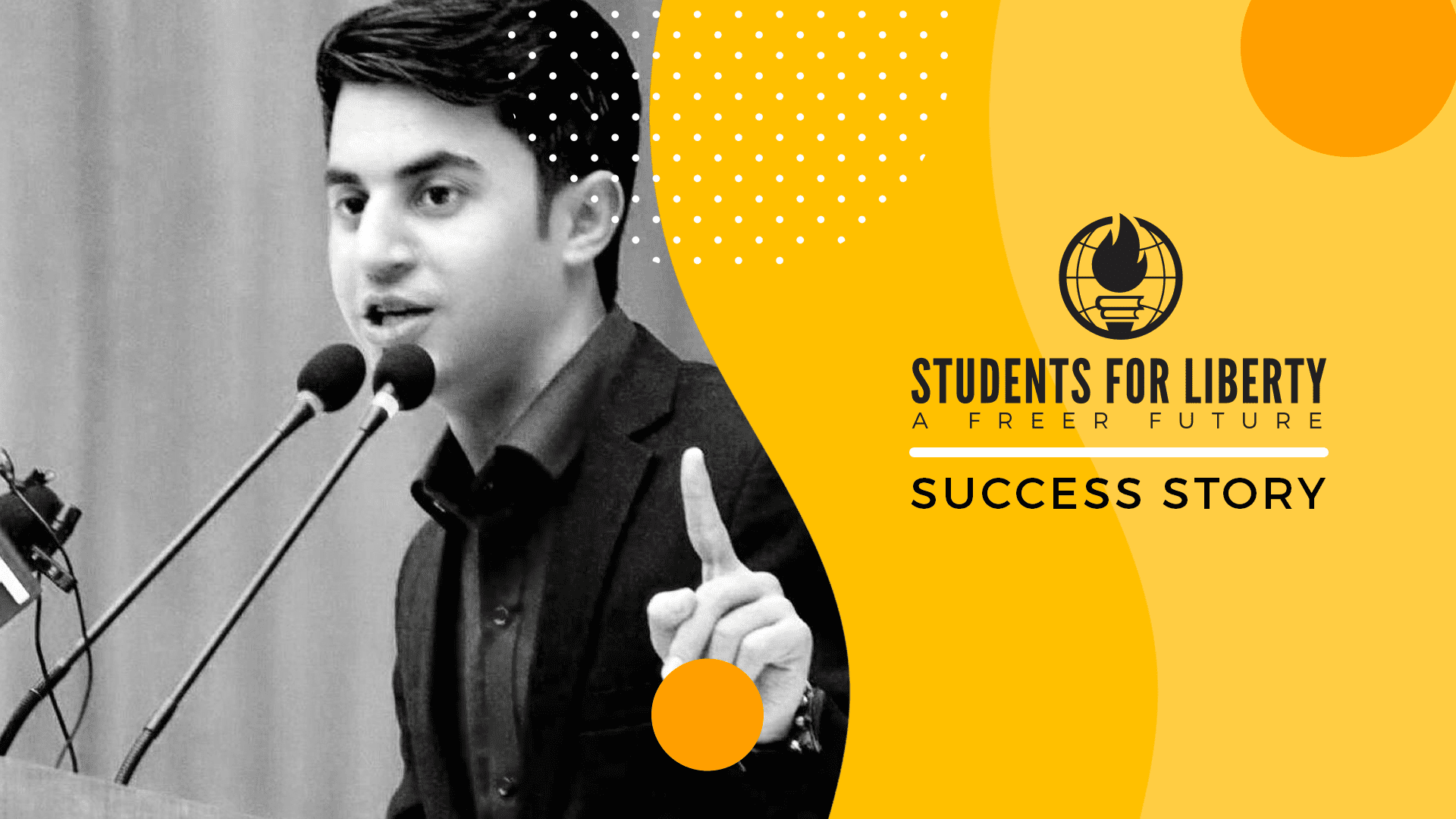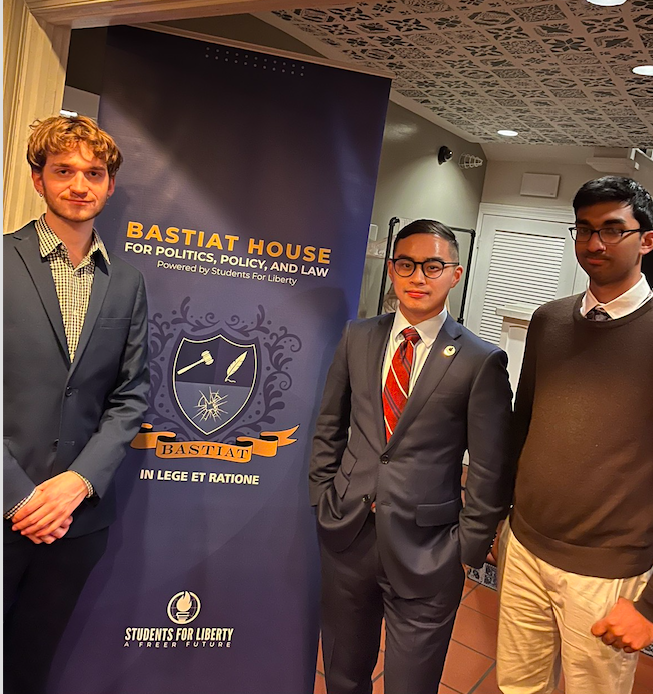Parwiz Mosamim was born in Afghanistan, in 1994, at a time when the ideas of liberty were particularly unfamiliar there. He tells us about Afghanistan’s recent history, his research as a Ph.D. student at Università della Svizzera italiana (USI), and his experience as a leader for liberty.
“There has been an idea of evolution since 2001 because of the fall of the Taliban regime. We have been working on democratic values, democratic elections, freedom of expression, freedom of media, and other fundamental rights for men and women, girls and the younger generation.”
“Afghanistan today is, of course, not the Afghanistan of 2001. Afghan women are not the same as Afghan women in 2001. I have three sisters that are younger than me. The oldest one is about to graduate from school. So, now that the Taliban control Afghanistan, she is afraid that she cannot complete her education. My middle sister, she’s in seventh grade, and the youngest one has just started first grade.”
“Now that the Taliban control Afghanistan, we are afraid that, again, we will go back and then the women, they won’t have their representation or fundamental rights in this regime. This is very sad at the moment, and we have to wait to see, but that happened with the Taliban.”
“I’m really worried about my oldest sister because she has been dreaming a lot about her education and if she cannot graduate from school, what will happen? She always told me that she would apply for scholarships and go to other countries to continue her bachelor’s, so I’m really worried. She told me she wanted to be a journalist like me. Sometimes I cannot sleep, because I’m thinking about her future. However, I don’t want to lose hope.”
“I’m a picture of Afghanistan today. Me, thousands of other young people, boys and girls, women and men – they have been educated. They have worked on their skills. They have international engagements. They are open-minded people, and they speak about human values.”
“Before I became a journalist, I had been working as an English language instructor. I thought that maybe some of the girls and boys didn’t have money to study in private educational centers, so I had a program on TV for free to teach English. In 2015, I started working as a news reporter and writing for some newspapers in Afghanistan – famous newspapers.”
“I don’t think they publish anything now since the Taliban took over the country.”
“In 2018, I got a scholarship to Indonesia to pursue my master’s. And that was when I read about Students For Liberty.”
“I was impressed. I was inspired. I thought this organization says ‘for liberty.’ It means those who believe in liberty, those who are fighting for freedom and working on education. I applied to be our local coordinator, and fortunately, I was accepted.”
“As an SFL member, I participated in a youth waging peace workshop, which the United Nations Alliance of Civilization held in Sri Lanka, and now I’m working with some other youth on a report on the state of preventing violent extremism in South Asia, which is part of UNESCO MGIEP.”
“My research at Università della Svizzera italiana (USI) focuses on Women’s Representation in Decision–Making Positions of Public Administration in Afghanistan, which means that I am exploring women’s representation barriers and opportunities in the bureaucratic system of the Afghanistan government through the Representative Bureaucracy Concept.”
“There were already challenges for women’s representation in the previous government, but now we have a flashback to 2001. We don’t have any women in the decision-making positions in government.”
“I hope that the Taliban accepts this generation as having dreams, as having thoughts for the future, because we have around 70 percent illiteracy in Afghanistan, and it cannot be accepted anymore. Families want their daughters and sons to be educated because they know that illiterate people cannot do anything. Uneducated people cannot bring changes for their country. And now they understand the value of education.”
“I’ve always thought that I am a young leader. Even though there are tough days, even during the tough times in my life. I still have to lead, I have to lead myself, I have to lead the way that I’m going and I have to be positive for myself, for my people around, and the ones communicating with me.”
“The young generation should first learn to be leaders and leaders doesn’t mean to be a politician. So we need to act as young leaders – how to lead our lives, how to lead our education, how to be our future values, and how to live our liberty values as well.”
“When we talk about liberty values, and about democratic values, it means things like our freedom of speech and freedom of media. To be a member of this world it means that we have the right to speak, the right to discuss, to sit together and think about a better future not just for parts of people, for all the people. We all need one another.”
“I’m really honored to be part of SFL, having such wonderful people around who care about this. Not just in Afghanistan but in all corners of the world.”
Parwiz Mosamim
Lugano, Switzerland
This piece solely expresses the opinion of the author and not necessarily the organization as a whole. Students For Liberty is committed to facilitating a broad dialogue for liberty, representing a variety of opinions.






